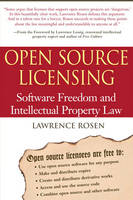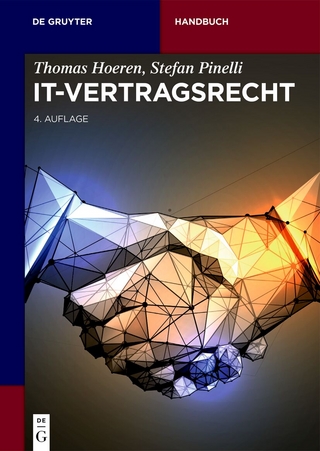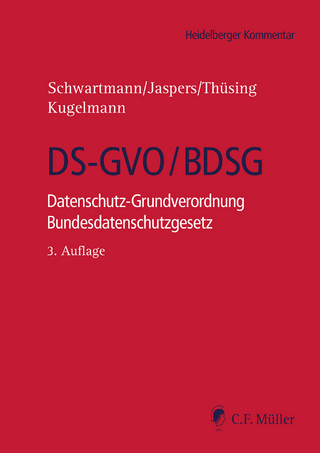
Open Source Licensing
Prentice Hall (Verlag)
978-0-13-148787-1 (ISBN)
- Titel ist leider vergriffen;
keine Neuauflage - Artikel merken
“I have studied Rosen’s book in detail and am impressed with its scope and content. I strongly recommend it to anybody interested in the current controversies surrounding open source licensing.”
—John Terpstra, Samba.org; cofounder, Samba-Team“Linux and open source software have forever altered the computing landscape. The important conversations no longer revolve around the technology but rather the business and legal issues. Rosen’s book is must reading for anyone using or providing open source solutions.”
—Stuart Open Source Development LabsA Complete Guide to the Law of Open Source for Developers, Managers, and LawyersNow that open source software is blossoming around the world, it is crucial to understand how open source licenses work—and their solid legal foundations. Open Source Initiative general counsel Lawrence Rosen presents a plain-English guide to open source law for developers, managers, users, and lawyers. Rosen clearly explains the intellectual property laws that support open source licensing, carefully reviews today’s leading licenses, and helps you make the best choices for your project or organization. Coverage includes:
Explanation of why the SCO litigation and other attacks won’t derail open source
Dispelling the myths of open source licensing
Intellectual property law for nonlawyers: ownership and licensing of copyrights, patents, and trademarks
“Academic licenses”: BSD, MIT, Apache, and beyond
The “reciprocal bargain” at the heart of the GPL
Alternative licenses: Mozilla, CPL, OSL and AFL
Benefits of open source, and the obligations and risks facing businesses that deploy open source software
Choosing the right license: considering business models, product architecture, IP ownership, license compatibility issues, relicensing, and more
Enforcing the terms and conditions of open source licenses
Shared source, eventual source, and other alternative models to open source
Protecting yourself against lawsuits
Lawrence Rosen is an attorney specializing in technology and a computer professional who has taught programming and managed several computer departments at Stanford University. He is currently general counsel and secretary of Open Source Initiative (OSI), formerly served as its executive director, and has written several major open source licenses.
Foreword xv
Preamble xix
Chapter 1: Freedom and Open Source 1The Language of Freedom 1
Defining Open Source 2
Open Source Principles 8
Chapter 2: Intellectual Property 13Dominion Over Property 13
Right Brain and Left Brain 15
Acquiring Copyrights and Patents 17
Original Works of Authorship 19
Works Made for Hire 20
Exclusive Rights of Copyright and Patent Owners 22
Copies 24
Exceptions to the Exclusive Right to Make Copies 25
Collective and Derivative Works 26
The Chain of Title for Copyright 28
The Chain of Title for Patents 30
Joint Works 32
Assigning Ownership 33
Duration of Copyright and Patent 36
Trademarks 37
Exceptions to Intellectual Property Protection 39
Chapter 3: Distribution of Software 41Contributors and Distributors 41
Distribution 42
Open Source Collaboration 43
Contributor Agreements 45
What About Users? 49
Chapter 4: Taxonomy of Licenses 51What Is a License? 51
Bare Licenses 53
Licenses as Contracts 57
Patent Licenses 66
Template Licenses 68
Types of Open Source Licenses 69
Chapter 5: Academic Licenses 73The BSD Gift of Freedom 73
BSD License as Template 77
The BSD License Grant 77
Source and Binary Forms of Code 79
Conditions under the BSD 80
Warranty and Liability Disclaimer 83
The MIT License 85
The Right to Sublicense 87
The Warranty of Noninfringement 89
The Apache License 91
Protecting Trademarks 92
The Apache Contributor License Agreement 93
The Artistic License 95
License Preambles 96
When Amateurs Write Licenses 97
Big Picture of Academic Licenses 101
Apache License Version 2.0 102
Chapter 6: Reciprocity and the GPL 103The GPL Bargain 103
Copyleft and Reciprocity 105
Policy Objectives 107
The Preamble to the GPL 109
GPL as Template 112
The GPL Applies to Programs 113
Linking to GPL Software 115
Copyright Law and Linking 119
The LGPL Alternative 121
GPL Grant of License 125
Access to Source Code 128
“At No Charge” 131
Other Obligations in the GPL 133
The GPL and Patents 134
Accepting the GPL 136
Chapter 7: The Mozilla Public License (MPL) 141The Mozilla Story 141
The MPL Reciprocity Bargain 143
Contributors and Modifications 145
The MPL and Patents 147
Defending Against Patents 154
Other Important MPL License Provisions 156
Other Corporate Licenses 159
Chapter 8: The Common Public License (CPL) 161CPL as a Template 161
A Digression about Well-Written Licenses 162
Grant of Copyright and Patent Licenses 163
Reciprocity under the CPL 167
Exception to Reciprocity 168
Patent Defense 170
Defend and Indemnify 173
Ownership of the CPL License 176
Chapter 9: The OSL and the AFL 179Academic or Reciprocal? 179
Initial Paragraph of OSL/AFL 182
Copyright and Licensing Notice 225
Chapter 10: Choosing an Open Source License 229How Licenses Are Chosen 229
The Free-Rider Problem 230
Making Money from Open Source 231
In-Licensing 232
Out-Licensing 235
Contributions to Projects 238
License Compatibility for Collective Works 241
License Compatibility for Derivative Works 243
Relicensing 252
Chapter 11: Shared Source, Eventual Source, and Other Licensing Models 255Alternatives to Open Source 255
Shared Source 256
Public Source 259
Dual and Multiple Licensing 262
Eventual Source and Scheduled Licensing 264
Combining Licensing Models 267
Chapter 12: Open Source Litigation 269Owning a Cause of Action 269
Damages 271
Injunctions 274
Standing to Sue 276
Burden of Proof 277
Enforcing the Terms of a Contract 280
Disputes over Ownership of Intellectual Property 283
Disputes over Derivative Works 284
Patent Infringement Litigation 289
SCO vs. Open Source 290
Chapter 13: Open Standards 295Defining Open Standards 295
Open Specifications 296
Enforcing the Standard by Copyright Restrictions 298
Licensing the Test Suite: The Open Group License 299
Discouraging Forks: Sun’s SISSL 301
Patents on Open Standards 303
Reasonable and Nondiscriminatory 304
Royalty Free 306
The W3C Patent License 307
Justifying Open Standards and Open Source 310
The Open Source Paradigm 313Appendices 315Index 385
About the Author 397
| Erscheint lt. Verlag | 5.8.2004 |
|---|---|
| Verlagsort | Upper Saddle River |
| Sprache | englisch |
| Maße | 150 x 220 mm |
| Gewicht | 549 g |
| Themenwelt | Mathematik / Informatik ► Informatik |
| Recht / Steuern ► EU / Internationales Recht | |
| Recht / Steuern ► Privatrecht / Bürgerliches Recht ► IT-Recht | |
| Recht / Steuern ► Wirtschaftsrecht ► Urheberrecht | |
| ISBN-10 | 0-13-148787-6 / 0131487876 |
| ISBN-13 | 978-0-13-148787-1 / 9780131487871 |
| Zustand | Neuware |
| Haben Sie eine Frage zum Produkt? |
aus dem Bereich


